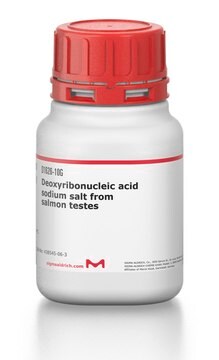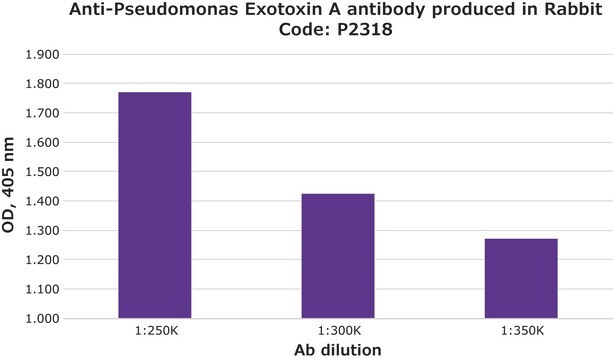P4338
Poly(ethylene glycol)
average MN 3,350, hydroxyl, BioXtra
Synonym(s):
Polyethylene glycol, PEG
About This Item
Recommended Products
Product Name
Poly(ethylene glycol), BioXtra, average mol wt 3,350, powder
product line
BioXtra
Quality Level
form
powder
mol wt
average mol wt 3,350
impurities
≤0.01% Phosphorus (P)
≤0.1% Insoluble matter
solubility
water: soluble (PEG is soluble in water approximately 670 mg/ml, 20 °C)
density
1.0962 g/mL at 60 °C
1.0764 g/mL at 80 °C
anion traces
chloride (Cl-): ≤0.05%
sulfate (SO42-): ≤0.05%
cation traces
Al: ≤0.0005%
Ca: ≤0.0005%
Cu: ≤0.0005%
Fe: ≤0.0005%
K: ≤0.005%
Mg: ≤0.0005%
NH4+: ≤0.05%
Na: ≤0.05%
Pb: ≤0.001%
Zn: ≤0.0005%
Ω-end
hydroxyl
α-end
hydroxyl
SMILES string
C(CO)O
InChI
1S/C2H6O2/c3-1-2-4/h3-4H,1-2H2
InChI key
LYCAIKOWRPUZTN-UHFFFAOYSA-N
Looking for similar products? Visit Product Comparison Guide
General description
Application
PEG can be used as an exterior coating for the pharmaceutical final dosage forms. This can avoid moisture from encountering active pharmaceutical ingredients. For example, Naproxen solid dispersions are coated with PEG by drop printing technique. The PEG layer protects the solid dispersions from moisture-accelerated crystallization and enhances their stability.
Nanostructured hydroxyapatite (HAP) can be prepared by a sol-gel technique using PEG as an organic modifier. The addition of PEG has an influence on the morphology of HAP particles. At high temperatures, more flexible PEG molecules result in the formation of large-sized HAP platelets. At low synthesis temperatures, less flexible PEG colloids form nanostructured HAP.
PEG powder can also be used as a laxative agent.
Storage Class Code
11 - Combustible Solids
WGK
WGK 1
Flash Point(F)
Not applicable
Flash Point(C)
Not applicable
Personal Protective Equipment
Choose from one of the most recent versions:
Already Own This Product?
Find documentation for the products that you have recently purchased in the Document Library.
Customers Also Viewed
Our team of scientists has experience in all areas of research including Life Science, Material Science, Chemical Synthesis, Chromatography, Analytical and many others.
Contact Technical Service



